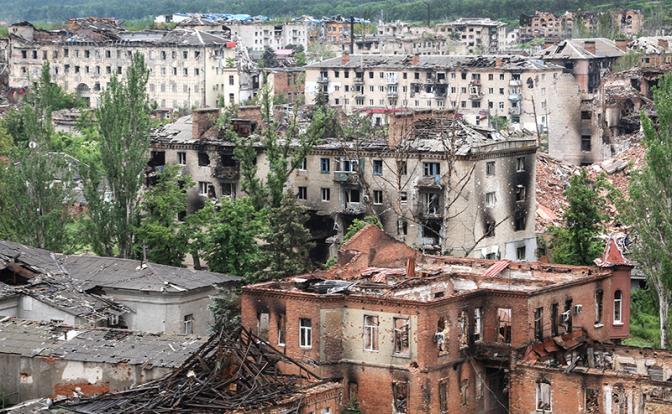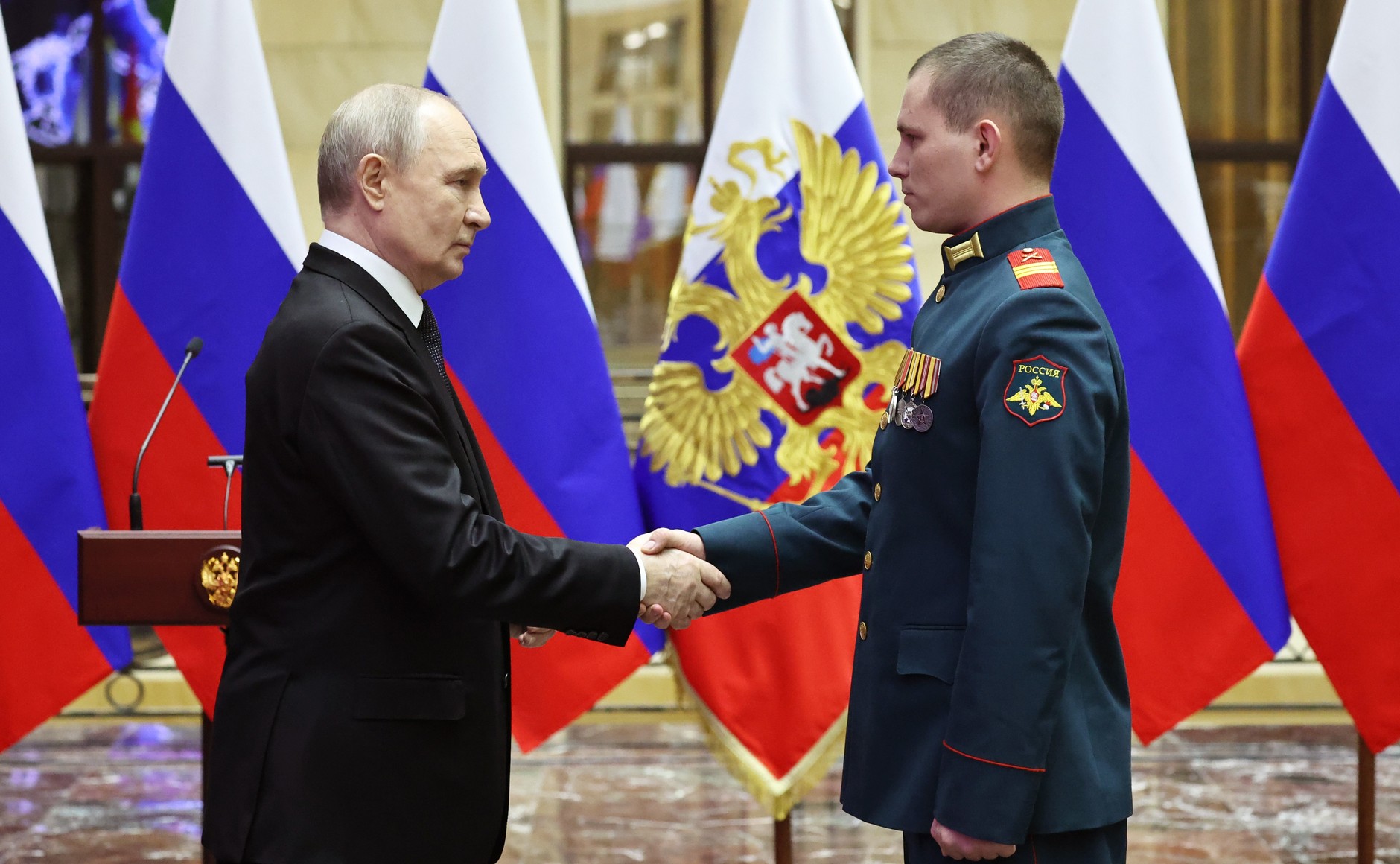
Occupying More of Ukraine Will Bring More Problems for Russia, Some in Moscow Now Saying
Occupying More of Ukraine Will Bring More Problems for Russia, Some in Moscow Now Saying
There are many compelling arguments against Russian President Vladimir Putin’s war against Ukraine. But perhaps the most powerful one for Russians is this: Even if the Kremlin leader should win, as he clearly still hopes to do, Russia would lose. This is because the more of Ukraine Putin occupies, the more problems he and Russia will face—both because of the daunting task of rebuilding a land it has sought to destroy under conditions of continuing hostility from the West and growing anti-Russian sentiments among the Ukrainian population, which will lead them to resist occupation for years to come. Some in Moscow are beginning to make the first case explicitly; others are indirectly talking about the second, recalling that it took Moscow more than a decade to wipe out Ukrainian armed resistance after World War II. By doing so, even in such backhanded ways, these commentators are reminding everyone that it might take the Kremlin even longer to do that this time around. Pointing to the costs of any policy, of course, is one of the first ways its opponents seek to defeat it; and such arguments are likely to become even more widespread and influential as the war continues and Russian losses mount.
Not surprisingly, given the political climate in Moscow, at present, these arguments are being made in ways that at least some will see as advocating for the complete destruction of Ukraine. Those making these cases insist that Moscow reabsorbed a hostile and devastated Ukraine in the 1920s and again after 1945 and can, as the Kremlin likes to say, “do so again.” But when articles appear such as the one on June 12 with the title “Having Won, We Will Acquire an Enormous Territory With a Dead Economy, Destroyed Infrastructure, and an Aging Population” and with the argument that some in the West are even interested in ensuring that Russia will be forced to assume that burden (Svapressa.ru, June 12), few in the Russian political class will have any difficulty reading between the lines. They will see clearly what the author and those he cites are worrying about and bringing to the attention of the Kremlin leadership.
Moscow security commentator Dmitry Rodionov begins this article with a question: Can Russia afford to leave any part of Ukraine unoccupied lest it becomes the basis for the rise of yet another “anti-Russia”? He argues that those in Moscow who are talking about accepting less than full territorial concessions fail to take into consideration the fact that no Ukrainian government will ever agree to that or the difficulties the Kremlin already faces in reviving the territories that Russian forces already occupy (Svapressa.ru, June 12).
Rodionov then quotes Sergey Kulik, a Russian journalist in occupied Crimea, who suggests that the West is not only cognizant of these difficulties but is also conducting the war in Ukraine to ensure that these troubles will be as problematic as possible for Russia with every region of Ukraine that Moscow takes under its control. According to Kulik, “The fact that the West wants to impose the destroyed Ukrainian state on Russia in order to undermine its economy was discussed in the expert community long before the start of the special operation. This, perhaps, explains the tactics of the Armed Forces of Ukraine.” Nevertheless, he expresses confidence that “we will cope” with all this just as Moscow did in the past, though the past he refers to is what Moscow faced in the 1920s and not the more problematic situation it had to deal with after 1945 (Svapressa.ru, June 12).
Rodionov also quotes another influential Moscow expert, Izborsky Club commentator Alexander Dmitrievsky, who expresses similar confidence but stresses that the further Russia advances, the more resistance it will face. Territories near the Russian border may be dominated by people who are either sympathetic to Russia or at least neutral and cooperative; however, those further to the West, including Kyiv, are more hostile. There, the supporters of Moscow are a distinct minority and those opposed to Russia and ready to resist are more numerous. At present, Dmitrievsky says, the scale of the “organized pro-Ukrainian underground” is relatively small because it lacks the local population’s support. Even so, he points out, “the scale will only increase with our advance in the western direction.”
According to Dmitrievsky, while “it may not be so difficult to liquidate Ukraine, it will be difficult to solve the issues she will leave us as a legacy.” The West is not going to help rebuild Ukraine, thus the entire burden will fall on Russia. Moreover, the longer Russia allows problems there to fester, the more resistance there is likely to emerge; and that challenge will be all the greater because no one left in Ukraine itself to do the job. Many younger workers have died in the fighting or have left, and “the massive aging and dying off of the population is the first thing that we will encounter having occupied Ukraine.” Nonetheless, like his counterparts, Dmitriyevsky says he favors occupying all of Ukraine but concedes that “we will not be able to do so without partition” for the time being (Svapressa.ru, June 12).
Given the extent of Russia’s devastation of Ukraine, rebuilding the country will impose enormous burdens on the Russian population—burdens many there are already beginning to complain about. (See, for example, Verstka.media, June 12.) But the near certainty of the emergence of a powerful anti-Russian underground in central and western Ukraine is likely to generate even more concern. Ukrainian resistance after 1945 was powerful and long-lasting, something Russian commentators began to talk about immediately after Putin launched his expanded invasion last year. (For the 2022 discussions, see Topwar.ru, March 20, 2022; for background on that resistance, see Shapoval, The War After the War, Chronicles of the UPA, in Ukrainian, 2005; Motyka, Ukrainian Partisans 1942–1960, in Polish, 2005.)
Such talk about future economic and military difficulties is likely to become an ever-more important part of discussions—not only about Russia’s future policies in Ukraine but about Putin’s future as well. This is perhaps all the more likely because of the concern that what happens in Ukraine will affect Russia domestically, not only in terms of popular attitudes generally but also among ethnic Ukrainians in Russia, whom some senior Russian officials fear are listening to the siren song of Ukrainian nationalism (see EDM, January 18; January 24; June 8).
In short, these commentaries suggest that at least some in Moscow are beginning to worry that having even larger numbers of Ukrainians within the borders of Russian Federation may be more dangerous and counterproductive than leaving most of them out.


